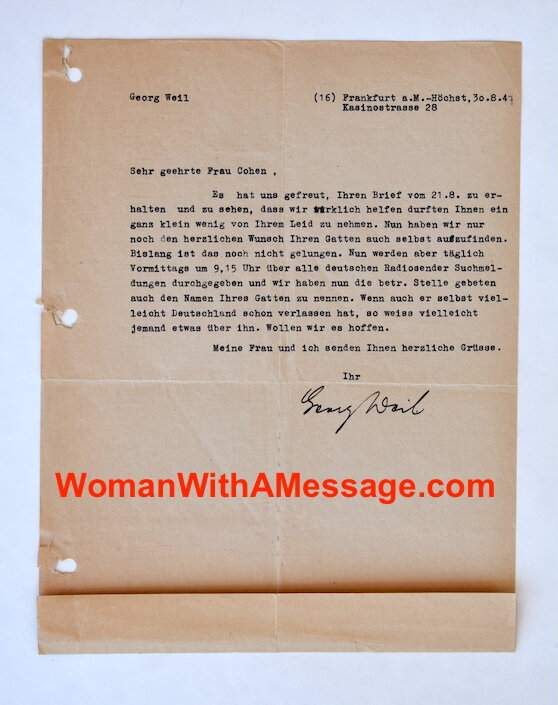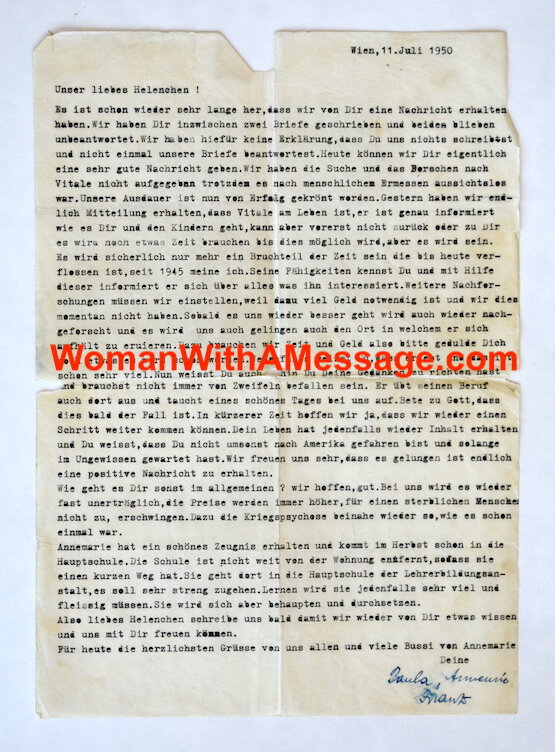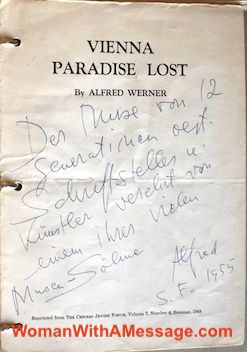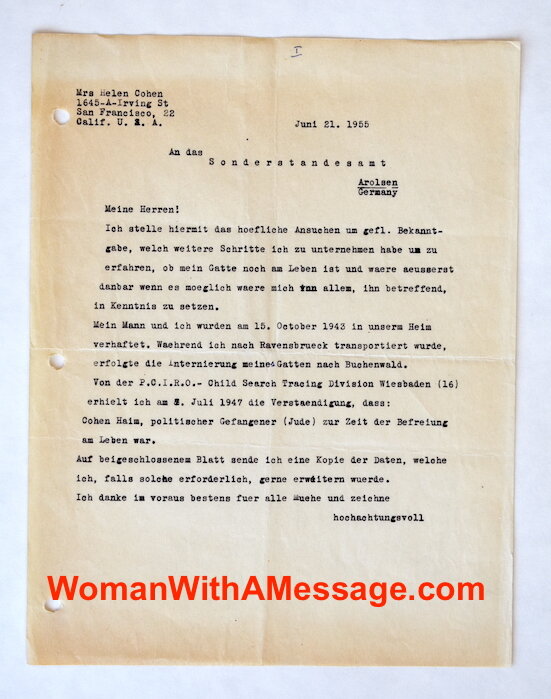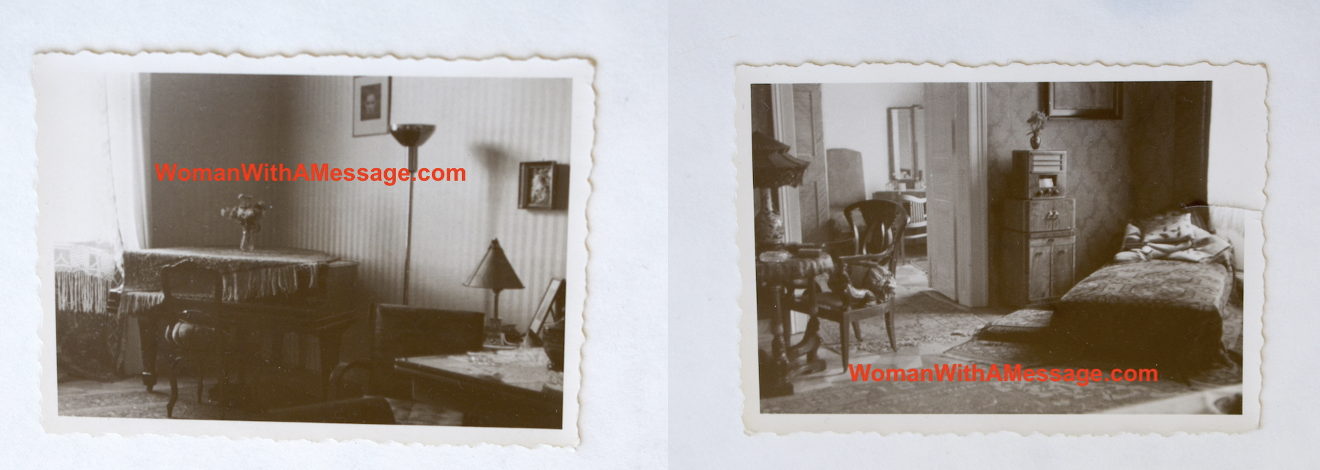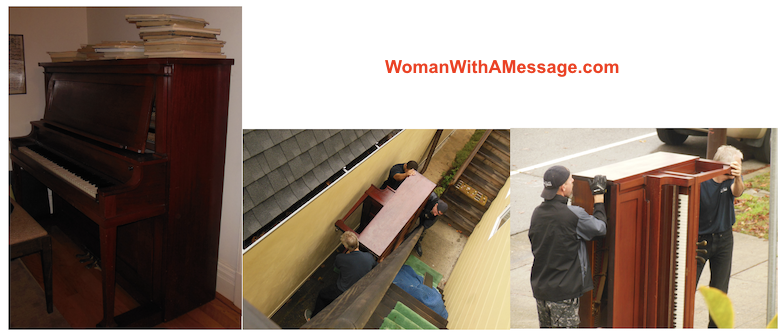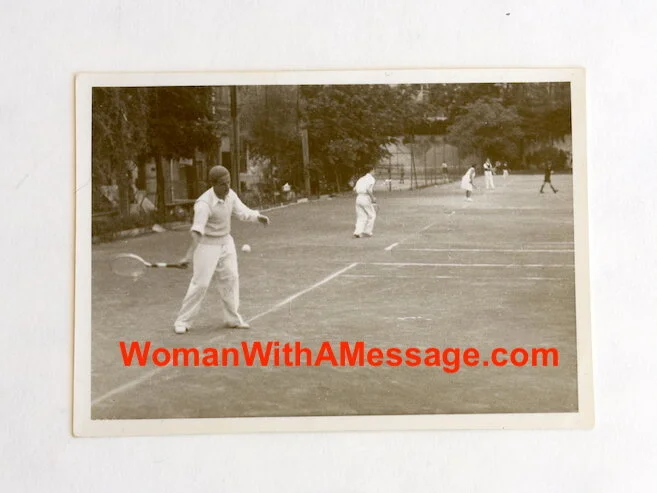Link to Family Tree to understand family relationships.
On July 11, we saw letters written in 1950 and 1953 from Helene’s friend in Vienna named Paula. She kept Helene’s hope alive for Vitali’s survival. Today’s letter from 1952 is signed by Pauline. Before the letters were translated, I thought Paula and Pauline were different people, but all refer to her daughter Annemiechen.
Vienna, 22. August 1952
Dear Helene!
Excuse that we are only writing to you today and not before, but we couldn’t do it before because we had lost your address and we had to wait for your letter to come. We thank you for sending the dear package. Annemiechen was really happy because a package came from Tante Helene. That caused such joy for her, as you can imagine.
Don’t worry about Vitali. He is living safe and sound in Turkey and we believe he will come to Vienna in the next months. You can fully believe in his return. He knows where you and the children are. If he shows up here first, we will let you know right away. So believe in it and don’t let yourself get discouraged, one day he will be there.
We couldn’t explain why you were silent for so long and thought maybe you were somewhere else, that you had moved or that you were sick. Perhaps you would have thought what do I need friends in Vienna for, it’s probably best if I let them go one at a time or something like that.
Now you have written again and we are happy you are still thinking of us. We are sorry to hear that you’ve had such a hard lot, but believe it will eventually go better for you. When Vitali is there, you will be finished with your troubles. It is the same there as it is here, people who work have nothing but burden and the other ones have the money.
The number of unemployed is increasing constantly here. The prices are awful, especially for food. The taxes are high and they keep going up so that a worker cannot really afford much. Then business doesn’t work very well either, because the main consumer, the worker, cannot buy anything. All the political considerations in the world do not work out to our advantage, because we are living on loans from other countries. What is said to us from the west, the east takes away so that nothing remains for us except debt. It is really not nice to live here right now. Maybe later a better time will come, but right now it’s really not interesting to live here.
Annemiechen is almost as tall as her mother and she is studying hard. She now has 2 more years of school and she will be glad when this time is over. She is a good girl, but she’s not really enthusiastic about going to school.
Pauline seems very calm and she was so happy to get your letter and is expecting further reports from you. You haven’t written anything for a long time, so you must have quite a bit to tell. We in any case will all be happy when we hear from you and get a longer report.
We are sending this letter from to you from our neighbor land. You must know that we still have censorship and that no letter comes from a foreign country or goes to a foreign country without censorship.
Don’t research where Vitali is - he is living under another name and doing so might be a disadvantage for him. He didn’t do well at first but now his living conditions have taken a turn for the better. We hope that he will not have to remain missing too much longer and that he will show up either here with us or come to you soon.
We are sending a picture of Annemiechen at her confirmation which was 2 years ago. She is now wearing her mother’s clothes and her mother is wearing the old well-worn rags, because she only wants the new ones. Normally it’s the other way around - the children wear the old rags from their parents.
Elsa is over there also and is telling horror stories about Pauline. How much did Pauline help her after the war and gave her dollars so that she would have some money on the trip and as a way of thanks, she said that she helped Pauline so much. There are many of her relatives who do not want to see her in Austria anymore because she’s been so insincere.
We hope to hear very soon from you and wish you all the best. Most sincere greetings from all of us
Your
Pauline
Living in Vienna after the war continues to be difficult – poverty, censorship, few opportunities. Paula/Pauline has had a difficult life and feels betrayed by those she had helped. As she begins to refer to herself in the third person, my mistrust of her assurances about Vitali’s situation grows. Paula/Pauline has suffered a lot of trauma over the years, and who knows what is real for her anymore?

